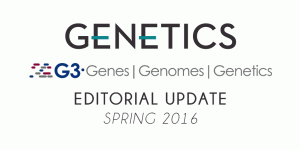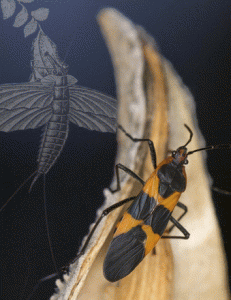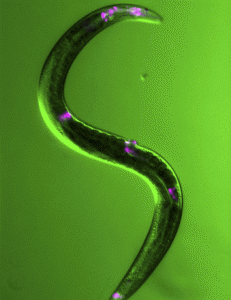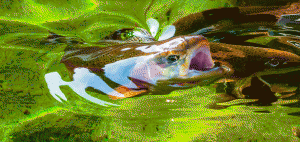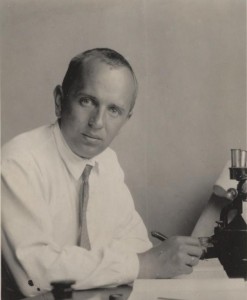Enter your address to receive notifications about new posts to your email.
Articles tagged Genetics Journal
(248 results)
-
Centennial Awards honor outstanding GENETICS articles
The Genetics Society of America (GSA) and the Editorial Board of the journal GENETICS are pleased to announce the winners of the first Centennial Award for outstanding articles published in GENETICS in 2015. The awards were inaugurated just this year in celebration of the 100th anniversary of GENETICS. Three exceptional articles are recognized from three…
-
GENETICS and G3 Spring 2016 Editorial Board Update
GENETICS and G3 are excited to welcome new editors and to announce editorial changes for the current quarter. GENETICS Senior Editors: Karl Broman, Nick H. Barton, Oliver Hobert, and Audrey Gasch GENETICS Associate Editors: Oliver Rando, Kirsten Bomblies, Giovanni Bosco, Graham Coop, Thomas E. Juenger, Alan Moses, John Novembre, Daven Presgraves, Valerie Reinke, and Nathan Springer G3 Associate Editors: Ross Houston,…
-
April GENETICS highlights
Check out the the April issue of GENETICS by looking at the highlights or the full table of contents! This Month’s Centennial Articles Motoo Kimura and James Crow on the infinitely many alleles model pp. 1243–1245 Warren J. Ewens Warren J. Ewens introduces Kimura and Crow’s 1964 GENETICS Classic The number of alleles that can be maintained in…
-
Luria & Delbrück: Jackpots and epiphanies
In the early 1940s, many biologists doubted bacteria had genes. After all, they seemed to play by their own genetic rules: they appeared to lack chromosomes, meiosis, mitosis, sex, and all the other trappings of Mendelian inheritance. They even seemed to show a kind of Lamarckian inheritance, in which an individual could pass on traits acquired…
-
March GENETICS highlights
Check out the the March issue of GENETICS by looking at the highlights or the full table of contents! This Month’s Centennial Articles Richard Hudson and Norman Kaplan on the coalescent process, pp. 865–866 Nicholas H. Barton Senior Editor Nicholas H. Barton introduces Hudson and Kaplan’s 1988 Classic, which extended the coalescent process to include selection, applying it…
-
Inducing lifesaving sleep in worms
Sometimes, a nematode worm just needs to take a nap. In fact, its life may depend on it. New research has identified a protein that promotes a sleep-like state in the nematode Caenorhabditis elegans. Without the snooze-inducing molecule, worms are more likely to die when confronted with stressful conditions, report researchers in the March 7, 2016…
-
How to write titles that tempt
You slave over writing your paper, trying to make sure that the introduction sets up a compelling story, that the results provide clear and convincing evidence for your conclusions, and that your discussion of what it all means makes sense. You and your co-authors edit relentlessly, passing the manuscript back and forth, improving it with…
-
Rapture sequencing: fast, low-cost, large-scale genotyping
A fisherman trying to catch rainbow trout (Oncorhynchus mykiss) needs the right tools: proper flies, a strong rod, and a little bit of know-how. A scientist trying to understand the genetic population structure of rainbow trout in the Fall River watershed of northern California also relies on a trusty toolkit – albeit a very different…
-
February GENETICS highlights
Check out the the February issue of GENETICS by looking at the highlights or the full table of contents! ISSUE HIGHLIGHTS This Month’s Centennial Articles Salvador Luria and Max Delbruck on random mutation and fluctuation tests, pp. 367—368 Andrew Murray Associate Editor Andrew W. Murray introduces Luria and Delbruck’s 1943 GENETICS Classic Mutations of bacteria from…
-
What doesn’t kill you makes your offspring stronger
When a C. elegans nematode starves early in its life cycle, its offspring are more resistant to starvation in the next generation; however, this life-saving inheritance comes at a fitness cost for the worm itself, reveals research published in GENETICS. Jobson et al. investigate the idea that lean experiences during early development cause organisms to…
-
Dobzhansky: Bug collecting and the Modern Synthesis
In 1917, amidst the turmoil of the Russian Revolution, a bug-obsessed teenager in Kiev discovered a new species of ladybird beetle in the debris washed up on the banks of the flooding Dnieper River. The following year, he described the species in his first scientific publication. That 18-year old ladybug spotter —Theodosius Dobzhansky— would go…



